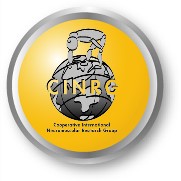
A Phase IIb Randomized, Double-blind, Parallel Placebo- and Active-controlled Study to Assess the Efficacy and Safety of Vamorolone in Ambulatory Boys with Duchenne Muscular Dystrophy (DMD)
Vision-DMD project aims to advance and accelerate the clinical development of the orphan drug Vamorolone (also known as VBP15) for the treatment of Duchenne Muscular Dystrophy (DMD) through a series of Phase 2 clinical trials being conducted in Europe, the US, Canada, Israel and Australia, leading to drug registration. Availability of Vamorolone should deliver a significant advance in the standard of care for all patients with DMD regardless of mutation.
DMD is a progressive and severe, rare genetic disease affecting approximately 1 in 3,500 to 5,000 male births. The natural history of the disease is devastating: untreated, boys become progressively weaker during childhood, losing independent ambulation at an average age of 9 years and death occurs by early adulthood due to cardio-respiratory failure. The disease remains incurable, though long term use of corticosteroids (CS), are widely, but not universally accepted as standard of care. In February 2017, Emflaza (Deflazacort) became the first steroid treatment for DMD, to be approved by the Food and Drug Administration (FDA) in the US. In other countries CS are used off label. Concerns about the severe side effects of all CS greatly restrict their prescription.
Vamorolone is an innovative first generation dissociative steroid-like drug specifically designed to retain or improve the benefits of CS treatment in DMD whilst aiming to reduce side effects that currently restrict their use.
This phase 2b study will compare the effect and the side effect profile of vamorolone versus placebo and daily prednisolone to determine whether vamorolone improves muscle strength and function compared to placebo and whether it has less side effects compared to prednisolone.
The study will recruit 100 boys with DMD across approximately 30 sites in Europe, the US, Canada, Israel and Australia.
In order to participate in the study, the boys and the families will need to sign a consent form and full information about the details of the study will be provided to allow them to make an informed decision.
During the study, participants will take the study drug for 6 months. Study drugs (vamorolone, prednisolone and placebo) will be administered orally daily, in the morning after breakfast. Study drugs will be administered in clinic during the study visits and at home in between study visits. Parents will be asked to keep a diary to record when the participant takes the drug, any missed dose or if he felt unwell while participating in the study.
Participants will be asked to regularly attend the clinic for study assessments. The frequency of these assessments will be higher at the beginning of the study (during screening period and when study drugs is started). At each study visit, the doctor and the study nurse will ensure that the participants are well and have not experienced side effects from the study drug. To do so, several procedures will be performed, including physical examination, blood and urine tests, questionnaires and vital signs. At some visits, participants will undergo a comprehensive physiotherapy and functional assessment to evaluate the effect of the study drugs on muscle strength: these will include the North Star Ambulatory Assessment, functional testing (time to rise from the floor, time to climb stairs, time to run 10 meters), 6 minute walking test (6MWT), muscle MRI, measures of the respiratory and heart functions.
At the end of the study (6 month treatment period) participants will be offered the possibility to continue receiving vamorolone in an extension study or to move into standard care (i.e. discontinuing study drug and receiving treatment according to care recommendations).
The study is expected to start recruitment in June 2017.
The study will recruit boys with a confirmed diagnosis of Duchenne muscular dystrophy (defined as total absence of dystrophin on muscle biopsy or genetic confirmation of an out-of-frame mutation in the dystrophin gene), who has not previously receive corticosteroids (prednisolone or deflazacort), older than 4 and younger than 7 years of age. Participants must be able to walk and to get up from the floor without assistance. Any condition which would preclude the prescription of corticosteroids would represent an exclusion criteria from the study. Current or previous (within 3 months) participation in other clinical trials with investigational drugs and the use of idebenone will represent exclusion criteria. Other specific inclusion and exclusion criteria will be in place to ensure to reach the primary endpoints within the study period.


.jpg)






This project has received funding from the European Union’s Horizon 2020 research and innovation programme under grant agreement number 667078.
List of participating countries/sites managed by the CIEC
• Belgium (2): UZ Leuven, UZ Gent
• Czeck Republic (2): Prague, Brno
• Germany (2): Essen, Freiburg
• Italy (2): Rome, Milan, Padova
• The Netherlands (1): Leiden
• Poland (1): Warsaw
Nancy De Bremaeker
nancy.debremaeker@lih.lu
+352 26 970 804
for articles/videos/studies
This page provides the list of clinical studies currently registered in the LuxCLIN platform in the different therapeutic areas. By clicking on each study title, more information is displayed concerning the study objective and the participation conditions.